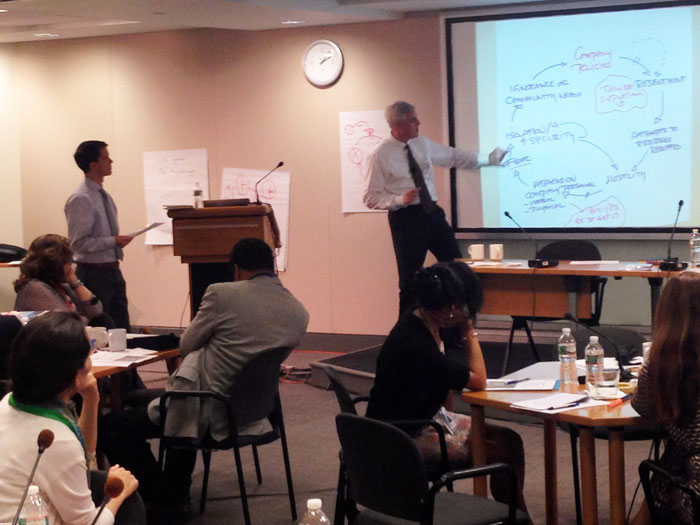The afternoon session switched gears, offering participants of the training an opportunity to explore DST concepts within the context of their work: patterns of conflict WBG and the dynamical systemic factors that serve to maintain these patterns. Informed by the results of the interviews conducted prior to the training, this portion of the session focused primarily on having the participants generate concepts maps of the conflict dynamics relevant to their work. This provided an opportunity for participants to practice the concepts that had been discussed earlier in the day, and immediately begin to understand the ramifications of applying DST concepts to their conflict work.
The training team is now planning a second session with the WBG to facilitate mapping sessions with other WBG stakeholders, and will also follow-up with a second day of training in the fall to offer participants more tools, beyond concept mapping, for apply DST concepts to their conflict work.
